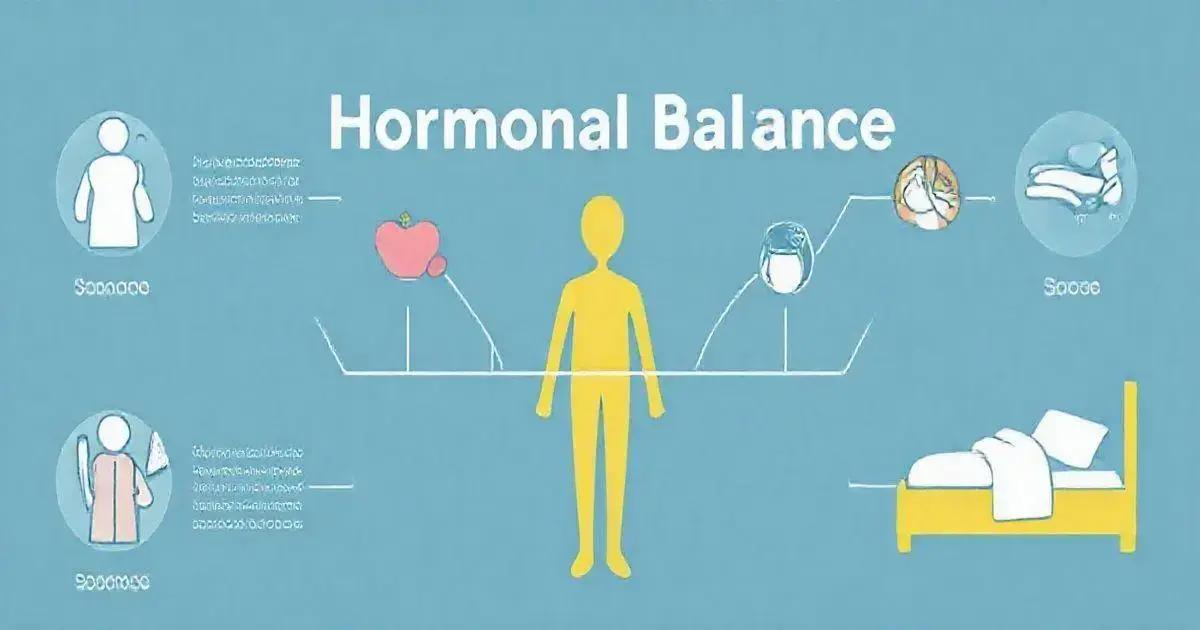Peaches support hormonal balance and enhance erectile function due to their rich nutrient profile, including vitamins, potassium, and antioxidants that aid testosterone production, improve blood circulation, and promote overall sexual health.
Are you curious about how peaches can enhance your sexual health? Packed with essential nutrients, peaches play a vital role in supporting hormonal balance, which is crucial for better erections. In this article, we’ll delve into the nutritional benefits of peaches, how they affect your hormones, and practical ways to incorporate them into your diet for better overall sexual health.
The Nutritional Benefits of Peaches
Peaches are not only delicious but also packed with vital nutrients that support overall health. These juicy fruits are rich in vitamins and minerals that play a significant role in maintaining hormonal balance and enhancing sexual health.
Nutrient Profile of Peaches
A medium peach offers about 58 calories, making it a low-calorie fruit option ideal for healthy snacking. It contains essential nutrients such as:
- Vitamin C: Supports immune function and may enhance the body’s natural ability to absorb iron.
- Vitamin A: Important for vision, skin health, and immune function.
- Potassium: Helps regulate blood pressure and supports proper muscle function.
- Fiber: Promotes digestive health and may help regulate blood sugar levels.
Antioxidant Properties
Peaches are rich in antioxidants like phenolic acids, carotenoids, and vitamin C, which combat oxidative stress in the body. By reducing inflammation and free radicals, these antioxidants can improve blood circulation, an essential factor for better erections.
Hydration Benefits
With a water content of around 90%, peaches help keep the body hydrated. Proper hydration is linked to overall health and vitality, impacting energy levels and sexual performance.
Folate for Hormonal Health
Peaches contain folate, a B vitamin crucial for DNA synthesis and cell division. Adequate folate levels support hormonal health, particularly in testosterone and estrogen production, both vital for sexual function.
Incorporating peaches into your diet can provide numerous health benefits, especially for those looking to enhance their hormonal balance and improve sexual health.
Hormonal Balance Explained

Hormonal balance is essential for our overall well-being, influencing everything from mood to sexual health. Hormones are chemical messengers in the body that control various functions, including metabolism, growth, and reproductive health.
What is Hormonal Balance?
Hormonal balance refers to the state where the hormones in your body are in optimal levels. When hormones are balanced, they work together harmoniously, supporting various bodily functions.
Why is Hormonal Balance Important?
Maintaining hormonal balance is critical for many reasons:
- Energy Levels: Balanced hormones help sustain consistent energy throughout the day, preventing fatigue.
- Mood Regulation: Hormones play a significant role in mental health, with imbalances often causing symptoms of anxiety or depression.
- Reproductive Health: Hormonal balance is crucial for healthy reproductive functions in both men and women.
- Weight Management: Hormones influence how the body stores and uses fat, affecting weight gain or loss.
What Affects Hormonal Balance?
Several factors can disrupt hormonal balance, including:
- Diet: Poor nutrition can lead to deficiencies or surpluses in hormones.
- Stress: High-stress levels can cause cortisol imbalances, affecting many other hormones.
- Sleep: Lack of sleep can negatively impact growth hormone and cortisol levels.
- Age: As we age, hormone production can decrease, leading to imbalances.
Improving your diet, managing stress, ensuring adequate sleep, and maintaining a healthy lifestyle can help support hormonal balance.
How Peaches Affect Hormones
Peaches can have a positive impact on hormonal health due to their rich nutrient composition. These fruits contain various vitamins and minerals that play a role in regulating hormone levels in the body.
Supporting Testosterone Levels
Peaches include significant levels of vitamin C, which is essential for the production of testosterone. Adequate testosterone levels are crucial for male sexual health, including erection quality and libido. Incorporating peaches into your diet may assist in maintaining healthy testosterone levels.
Impact on Estrogen
For women, balancing estrogen levels is vital for reproductive health. Peaches are a source of phytoestrogens, which are plant compounds that mimic estrogen in the body. These compounds can help support hormonal balance, especially during menopause.
Influencing Cortisol Levels
Stress can lead to elevated levels of cortisol, a hormone that can disrupt other hormonal balances. Peaches contain antioxidants that may help the body manage stress and reduce cortisol spikes, leading to better overall hormonal health.
Rich in Antioxidants
The antioxidants found in peaches, such as vitamin E and various flavonoids, contribute to combating oxidative stress. Reducing oxidative stress is essential for maintaining healthy hormone production, as it supports the proper functioning of endocrine glands.
In summary, regularly consuming peaches can aid in regulating and balancing hormones, contributing to better sexual health and overall well-being.
Impact on Erectile Function

Erectile function is influenced by various factors, including hormone levels, blood flow, and overall health. Peaches can play a significant role in enhancing erectile function due to their unique properties.
Improving Blood Circulation
Peaches are rich in potassium, a mineral that helps manage blood pressure. Proper blood circulation is vital for achieving and maintaining an erection. By helping to regulate blood pressure, potassium can promote better blood flow to the penis.
Supporting Hormonal Health
As previously mentioned, peaches support hormonal balance, especially for testosterone levels. Healthy testosterone levels are crucial for male sexual function. Increased testosterone can lead to improved libido and erectile performance.
Antioxidant Benefits
Peaches contain antioxidants that protect the body from oxidative stress. Oxidative stress can negatively impact blood vessels, potentially hindering erectile function. By consuming peaches, men can benefit from improved cardiovascular health, supporting their erectile function.
Hydration and Sexual Health
Peaches have high water content, which helps keep the body hydrated. Staying well-hydrated is essential for optimal body function, including sexual health. Dehydration can lead to fatigue and reduced libido, which can negatively impact erectile function.
Incorporating peaches into your diet may provide significant benefits for erectile function, supporting both hormonal balance and improved blood circulation for better sexual health.
Practical Tips for Including Peaches in Your Diet
Including peaches in your diet can be both delicious and beneficial for hormonal balance and erectile function. Here are some practical tips to help you add more peaches to your meals.
Fresh Snacks
Fresh peaches make great snacks! Simply wash and slice them for a quick and healthy treat. Add a sprinkle of cinnamon for added flavor and health benefits.
In Smoothies
Blend peaches into your morning smoothies. Combine them with yogurt, spinach, and other fruits to create a nutrient-rich drink that supports hormonal health.
Peach Salads
Add slices of fresh peaches to your salads. They pair well with greens, nuts, and feta cheese, providing a sweet and tangy flavor that enhances any salad.
Baking with Peaches
Incorporate peaches into your baking. You can add chopped peaches to oatmeal, muffins, and breads. This not only adds sweetness but also nutrients.
Grilled Peaches
Try grilling peaches for a unique dessert. Brush them with a little honey and grill until they are caramelized. Serve with yogurt or ice cream for a tasty treat.
By using these practical tips, you can easily enjoy the benefits of peaches while enhancing your hormonal balance and overall health.
In Summary: The Power of Peaches for Hormonal Balance and Erectile Function
Incorporating peaches into your diet can offer a variety of health benefits, particularly in supporting hormonal balance and improving erectile function. With their rich nutrient profile, including vitamins, minerals, and antioxidants, peaches can help regulate key hormones essential for sexual health.
From aiding in testosterone and estrogen production to enhancing blood circulation, the impact of peaches on your overall well-being is significant. By including peaches in your meals as snacks, smoothies, salads, or desserts, you can easily reap their benefits.
As you explore new ways to enjoy this delicious fruit, remember that maintaining a balanced diet and healthy lifestyle is crucial for optimal hormonal health. So, indulge in the flavor of peaches and support your body’s needs today!
FAQ – Frequently Asked Questions about Peaches and Hormonal Balance
How do peaches support hormonal balance?
Peaches are rich in vitamins and antioxidants that help regulate key hormones in the body, particularly testosterone and estrogen, important for sexual health.
Can eating peaches improve erectile function?
Yes, the nutrients in peaches can enhance blood circulation and support hormonal health, both essential factors for better erectile function.
What are some easy ways to include peaches in my diet?
You can enjoy peaches fresh, add them to smoothies, salads, bake them into dishes, or grill them for a tasty dessert.
Are there any specific nutrients in peaches that benefit sexual health?
Peaches contain vitamin C, potassium, and antioxidants, which support testosterone production, improve blood flow, and protect vascular health.
How many peaches should I eat for health benefits?
Incorporating one to two peaches a day as part of a balanced diet can provide health benefits and contribute to your overall well-being.
Are there any side effects of eating peaches?
Peaches are generally safe to eat, but some people may have allergic reactions to them. If you experience any adverse effects, consult a healthcare professional.












